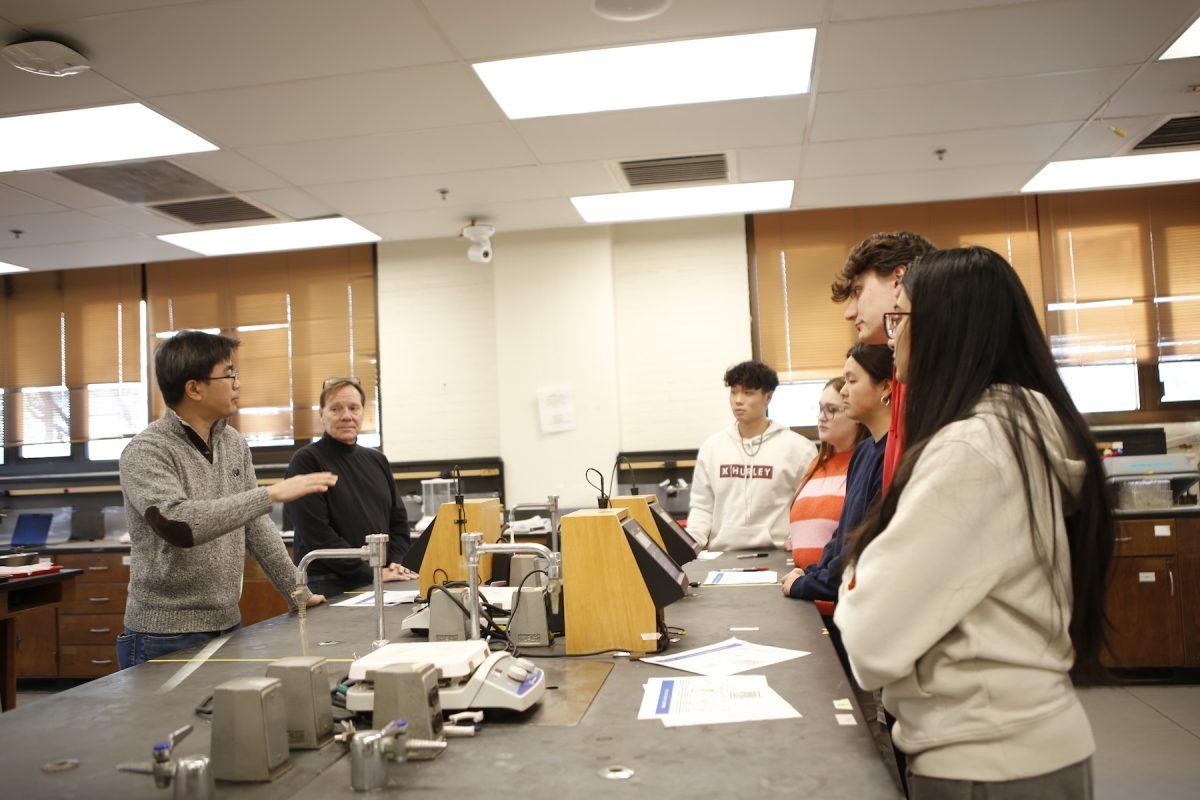Students and faculty in St. Joe’s pharmacy and occupational therapy (OT) departments collaborated on a research project to test a new method dispensing Rick Simpson Oil (RSO) Feb. 5 on the University City campus.
The project explored the use of a new oral syringe add-on kit developed by medical device manufacturer Control Ltd. The syringe add-on is designed to improve accuracy and accessibility in the delivery of RSO, an experimental substance derived from cannabis-extract that shows promise for assisting in the treatment of several ailments and diseases, including cancer.
Five pairs, each with one student from pharmacy acting as the subject and one from occupational therapy acting as the observer, tested the application of this technology and how it compared to current industry standard practices. Students substituted the oil with molasses to simulate the darkness and viscosity of the drug.
Andrew Peterson, Ph.D., Pharm.D., professor of pharmacy, organized the experiment along with two pharmacy students and occupational therapy faculty. His main takeaway from the event was how it could benefit students to consider an interdisciplinary perspective as one would in a real-world research setting.
“The main focus of this for us is really an educational standpoint, because we are now getting two different professions,” Peterson said. “We’re doing interprofessional education about research, so we have pharmacy students and occupational therapy students and pharmacy and OT faculty coming together to be able to solve the problem.”
The study’s focus on the syringe kit was suggested by Sophornarak Horn, father of two St. Joe’s students and vice president of research and development at Control Ltd. He said he believes further exploration of this technology’s usage is a way St. Joe’s can improve quality of life for people in its own community and beyond.
“St. Joe’s has a great opportunity to work in a field that’s essentially new and growing, and requires some supporting material to be able to develop a foundation to continue additional reviews and analysis in terms of establishing standard protocol, standard dosing regimen and standard procedure that will initially be evaluated in this area, but could have national or international impact,” Horn said.
Lynda Lemisch, doctorate of occupational therapy (OTD), clinical assistant professor of occupational therapy, oversaw and advised the participants. She feels one of the most beneficial aspects of the experience for the students was the collaborative element.
“It helps to give our students and our faculty a different perspective,” Lemisch said. “It’s thinking out of the box and appreciating where someone is coming from. That’s how the world works. It should work that way.”














































